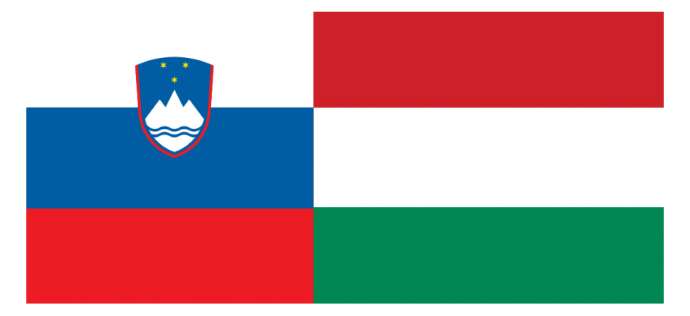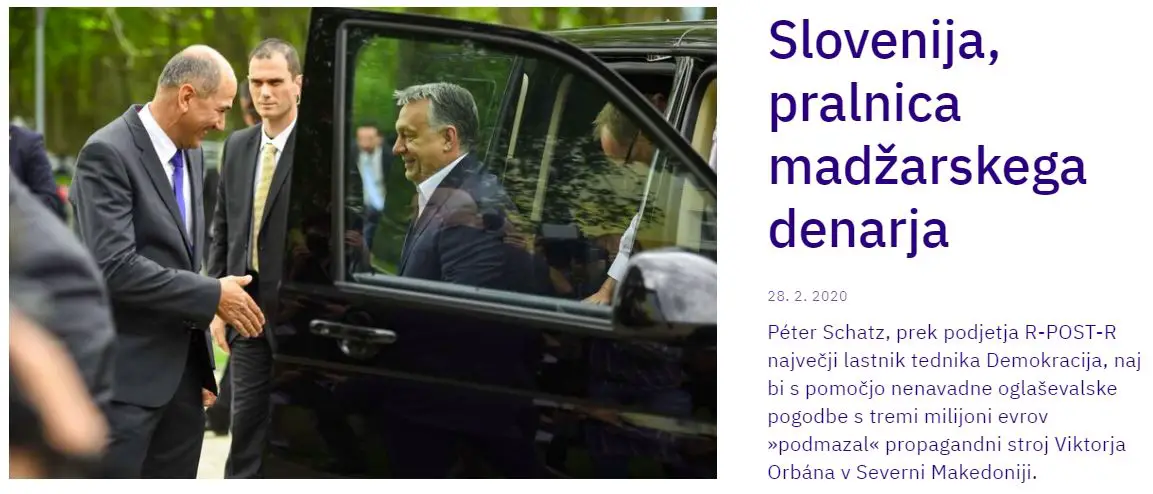STA, 28 February 2020 - The Slovenian web portal Oštro published on Friday along with two more investigative journalism groups in the region a report alleging that a Slovenia-based company was used to launder illegal Hungarian government money and finance media propaganda in North Macedonia.
The story - coming after reports showing entrepreneurs close to Hungarian PM Viktor Orban helped fund Slovenian media with ties to the Democrats (SDS) and Macedonian media associated with the country's VMRO-DPMNE party - is based on an investigation that had been started by Macedonian financial police in 2018.
The file of the Macedonian police, which allegedly acted after receiving a hint from Slovenian colleagues, is also said to contain documents obtained by the Organized Crime and Corruption Reporting Project and shared with its local centres in Slovenia (Oštro), North Macedonia (Investigative Reporting Lab Macedonia, IRL) and Hungary (Direkt36).
The centrepiece of the investigation is a EUR 2.94 million advertising campaign contract signed in 2017 by Hungarian entrepreneur Peter Shatz both on behalf the contracting party, his Slovenian publishing company R-POST-R, and the contractor, Macedonian company Target Media.
Screenshot ostro.si. You can see the story referred to here
Shatz, who has also been heavily engaged in dealings around Slovenian media associated with the SDS, used Target Media to buy the Macedonian Alfa TV and establish the Macedonian web portal ripostmk.com, both of which were publishing the ads stemming from the dubious EUR 2.94 million contract that ran from August 2017 to February 2019.
According to the findings of the Macedonian financial police, the marketing involved products by two small Hungarian companies - one of them purporting to sell olive oil from Croatia's Dalmatia region - that "do not exist on the Macedonian market" and whose import into Macedonia was not recorded before or after the ads were ran.
Moreover, indicating that the value of the contract was overblown, IRL quotes a Macedonian marketing expert as pointing out that the biggest client of a marketing agency in Skopje pays less than half a million euro annually for prime time ads at six TV and radio stations and web portals.
Macedonian police is said to suspect that the funds originated from illegal sources and that the aim had been to "legalise" them through Macedonian companies, meaning that money laundering is suspected.
The investigation is led by the director of the Macedonian financial police Arafat Muaremi, who suspects the money came from the Hungarian state budget.
Muaremi told IRL the police had informed the Macedonian prosecution of its findings in August 2019 but that no indictment had been filed. The prosecution said it was acquainted with the case but failed to explain why no action had been taken.
Muaremi added the investigation was started on the basis of a hint from Slovenian colleagues, who also "informed us that the money came from Hungary". According to Muaremi, Hungarian authorities have "not been willing to talk or cooperate with us in any way".
Slovenian police have not commented, but they did repeat that they had been conducting since March 2018 an investigation "of a suspected criminal offence whose perpetrator is prosecuted ex officio".
The Slovenian web portal necenzurirano.si has reported that this investigation pertains to the contentions EUR 450,000 loan taken out by the SDS in 2017 with Bosnian citizen Dijana Đuđić.
All our stories about Hungary and Slovenia are here








